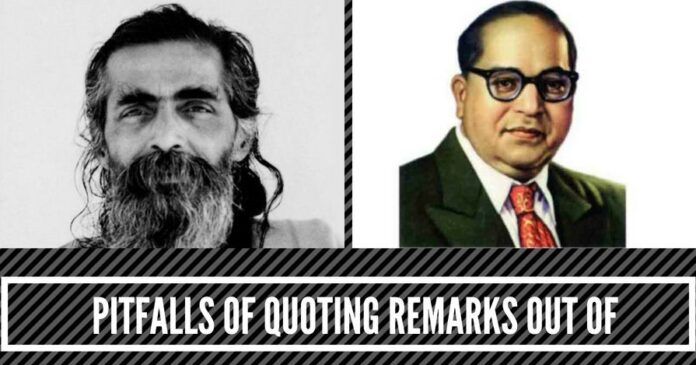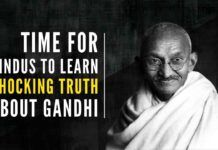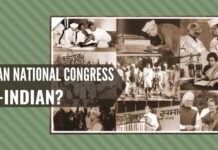
Ambedkar represented the Depressed Classes and Mahatma Gandhi represented the Congress which according to him was the representative of every section of Indian society
Television news channels had a field day in the run-up to former President Pranab Mukherjee’s speech at an RSS event, conducting heated talk shows. In one such discussion, a ‘secularist’ participant sought to remind the people of the RSS’s views on the Constitution and its architect BR Ambedkar, and provocatively demanded to know if the Rightists had “forgotten” what RSS chief MS Golwalkar had said about Ambedkar. He did not, of course, educate his co-panellists further, assuming that he had adequately indicted the RSS. So what had he said?
Golwalkar had criticised the Constitution for not being Indian enough —“it had nothing Bharatiya about it”. This was taken to be a condemnation of Ambedkar, given that the latter had presided over the Drafting Committee of the Constitution, which had prepared the document and which then came before the Constituent Assembly for discussion and adoption with necessary changes. The silliness of the inference is obvious. In any case, an honest and unmotivated opinion on the Constitution as being inadequate cannot be equated with an insult to the framers. Besides, Ambedkar himself had originally questioned the need for a Constitution to be discussed and adopted by the Constituent Assembly. “So much of the Constitution of India has already been written out in the Government of India Act, 1935, that it seems to be an act of supererogation to appoint a Constituent Assembly to do the thing over again.” He suggested that the only task that should be there before the Constituent Assembly was to “find a solution of the Communal Problem” (he was referring to the status of the Scheduled Castes and the attitude of the “Hindus” who believed that the “rule of the majority was sacrosanct”).
Later on, once the draft was prepared, he sought to distance himself from the effort. It would have been a noble act if he were to credit the team of the drafting panel; instead, he initially sought to run down the draft Constitution and wash his hands off it. He stated in the Constituent Assembly, much to the disbelief of the members present: “People always keep on saying to me: ‘Oh, you are the maker of the Constitution.’ My answer is I was a hack. What I was asked to do, I did much against my will.” Of course, he later defended the document by saying that if the Constitution failed, it would not be because it was flawed but that the people who implemented it had failed in their task.
Much is made out of the fact that Ambedkar had acknowledged Mahatma Gandhi as a “great man”. But Ambedkar had called even MA Jinnah a great man
These are not statements conjured out of thin air. They exist in the records of the proceedings and have been reproduced by authors, including Arun Shourie who wrote the book, Worshipping False Gods, and was slammed by Ambedkar loyalists. But let’s keep the issue of the Constitution aside — the purpose was only to demonstrate that it was not just Golwalkar but also Ambedkar himself who was less than satisfied with the draft version (though for different reasons) — and focus on the matter earlier raised: That of ‘things’ Golwalkar said about Ambedkar. If today’s secularists are so hooked on to remarks made in the past, one would do well to bring to their notice what Ambedkar had said about Mahatma Gandhi — and he had said so much that only a representative sample can be reproduced here for the sake of brevity.
Babasaheb Ambedkar and the Mahatma met at the Second Round Table Conference in 1931. Ambedkar represented the Depressed Classes and Mahatma Gandhi represented the Congress which according to him was the representative of every section of Indian society, including that of the Depressed Classes. In the backdrop of the friction between the two titans, Ambedkar later said: “Unfortunately the Congress chose Mr Gandhi as its representative. A worse person could not have been chosen to guide India’s destiny. As a unifying force, he was a failure. Mr Gandhi presents himself as a man full of humility. But his behaviour at the Round Table Conference showed that in the flush of victory, Mr Gandhi could be very petty-minded.”
The above quote from Ambedkar is from his own book, What Congress and Gandhi have done to Untouchables. I am not here going into the merits of his comments but sticking purely to the mandate of reproducing some of his remarks on the Father of the Nation. In the same book, Ambedkar has more to say on Mahatma Gandhi’s position on the caste system. Ambedkar fumes, and indulges in some petty language, when he says: “He (Gandhi) has outdone the most orthodox of orthodox Hindus. it is not enough to say that it is an argument of a caveman. it is really the argument of a mad man.” So, already, we see that Babasaheb called the Mahatma a madman, petty-minded, and a terrible choice as a leader of the Congress.
There are many more of similar utterances that present the Mahatma in poor light. Ambedkar virtually called him a liar while claiming that the latter was only indulging in “pious platitudes” about the uplift of the Depressed Classes. Throughout such assaults, Gandhi remained calm and refused to retort in a similar language. Much is made out of the fact that Ambedkar had acknowledged Mahatma Gandhi as a “great man”. But Ambedkar had called even MA Jinnah a great man. What is to be noted is that it was a backhanded compliment, as his later words showed. After all, Ambedkar, in his book referred to above, had said: “It is, therefore, necessary for me to expose the part played by Mr Gandhi in the movement of the Untouchables and to warn the Untouchables against succumbing to propaganda” (that the Mahatma had been the saviour of Scheduled Castes following the 1932 Poona Pact). A more complete understanding of Babasaheb’s opinion about Mahatma Gandhi can be had on pursuing Babasaheb Ambedkar: Writings and Speeches, published decades ago by the Maharashtra Government, besides the book mentioned already.
The point being made is simple: Commentators today ought to understand the pitfalls of digging out quotes from the past to run down one personality or the other, without providing the background material or placing those remarks in the context of the times they were made. Because, if Golwalkar’s criticism of the Constitution (and Ambedkar by inference) is used to indict the RSS, then by the same logic, Ambedkar’s comments on Mahatma Gandhi must also be considered in a similar light.
Note:
1. The views expressed here are those of the author and do not necessarily represent or reflect the views of PGurus.











very well sir ,, i know on what context ambedkar criticised gandhi ,,, but i dont know what was the context in which golwalkar said that constitution in not indian ,,,, also please elaborate on what context golwalkar said that india needs to learn a lesson from hitler ,,,
Yes. No double standards & cherry-picking.✌